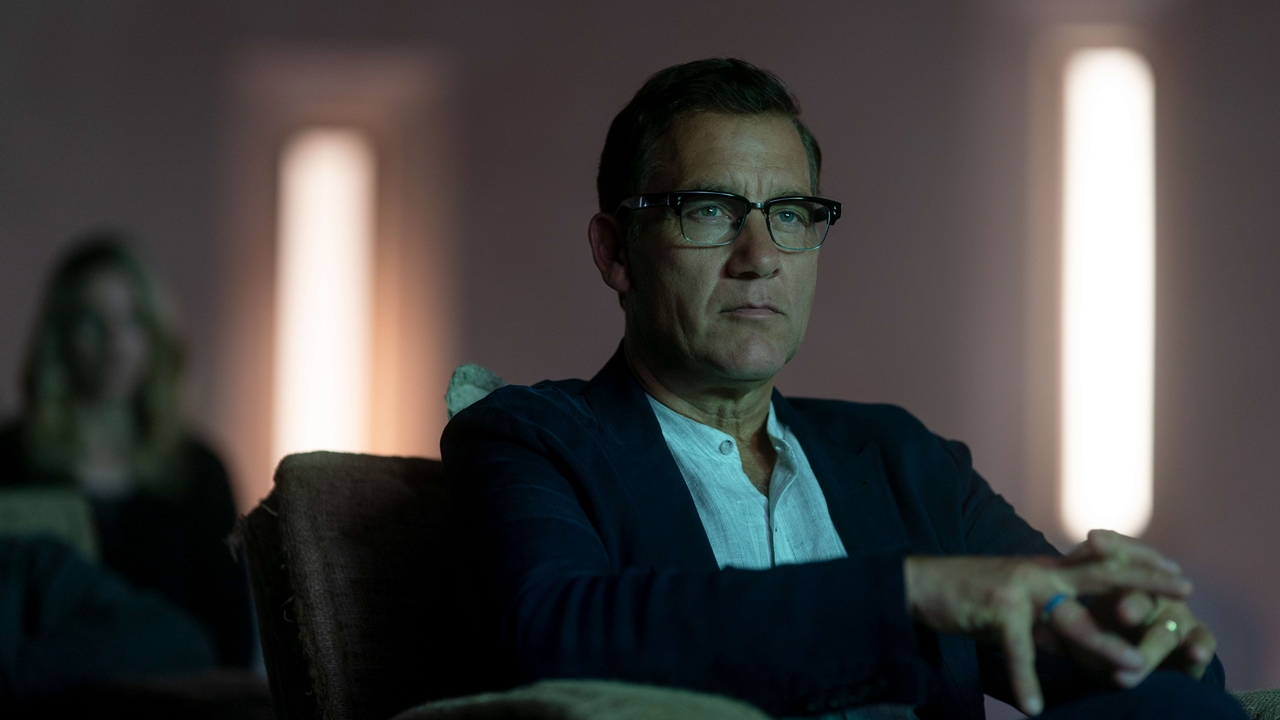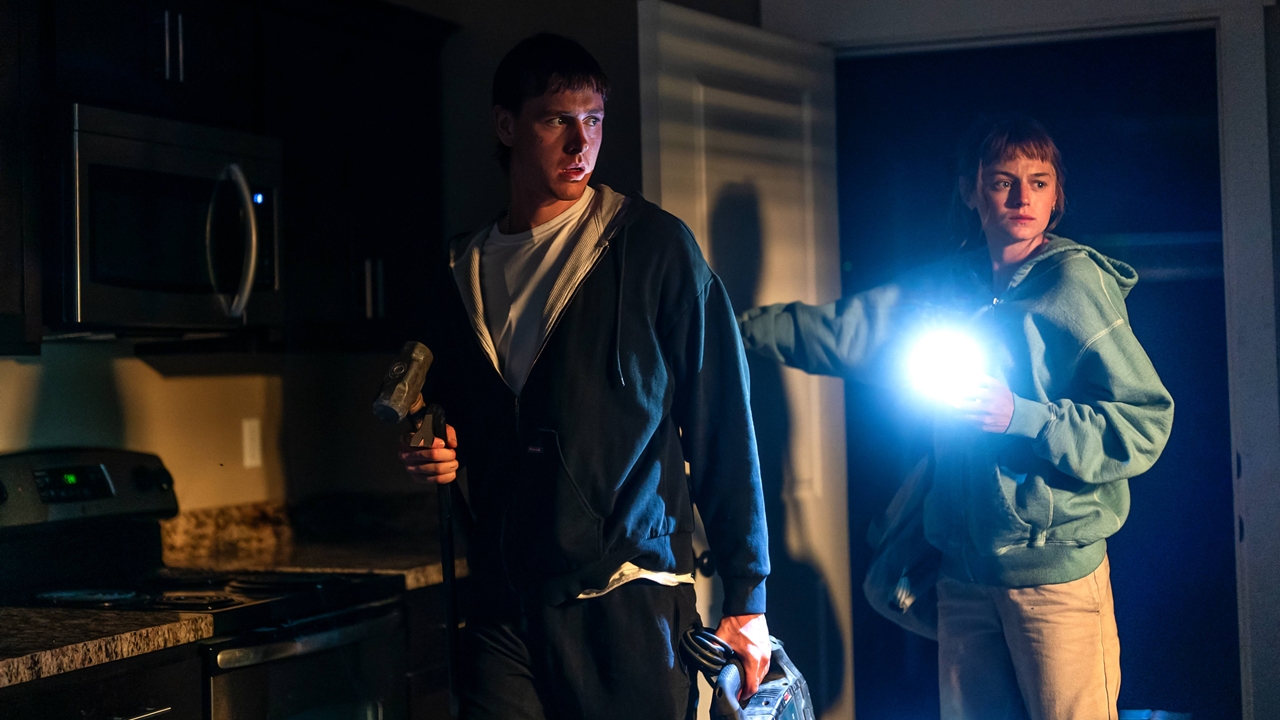Read also:
How to Watch FX Live Without CableHow To Watch AMC Without CableHow to Watch ABC Without CableHow to Watch Paramount Network Without CableHulu’s crime thriller/environmentalist warning is less than the sum of its references, but star Emma Corrin earns viewers’ attention.
The plot for A Murder at the End of the World goes a little something like this. A wealthy tech genius invites a group of similarly impressive individuals—including a detective who seems not to belong—to an isolated location for not entirely clear reasons. A murder sets everyone on edge as competing interests suggest several suspects and impede a proper investigation. Things only get worse as more die, and a storm ensures the group has no means of immediate escape.
If you find yourself thinking back to Glass Onion, rest assured you can’t be the only one. Functionally, the series plays as a kind of Anti-Glass Onion, the film’s cracked mirror image. While it is still plenty critical of the rich, it treats them with significantly more credulity. Their reputations earned, they’re genuinely talents apart from the rabble. The big issue isn’t that they’re idiots and buffoons but that they’re squirreling away their gifts from the masses.
The show’s attitude towards those masses also stands apart. While Onion tends to suggest a more humanistic view of the population, cynicism runs through World’s veins. Much of this can be placed at the feet of series co-creators Brit Marling (who also has a sizable supporting role) and Zal Batmanglij. Their work on The OA excepted, both creators tend towards the grave and often pessimistic. That’s especially the case on environmental matters like the ones that motivate several characters here.
 Hulu)" class="wp-image-45357"/>
Hulu)" class="wp-image-45357"/>People can wile away considerable time playing spot the influence. It’s easy to compare and contrast all day with the works of Agatha Christie and Stieg Larsson and USA Network’s Characters Welcome era crime solvers. However, at a certain point, one owes the series a proper review.
Emma Corrin’s performance as Darby Hart, hacker and frequent visitor to the unsolved crimes subreddit turned amateur detective turned true crime writer earns that. Hart’s demonstrably talented. They writes with open-hearted honesty and an intelligent sense of how to build suspense without messing with the facts. The child of a coroner, they’ve observed crime scenes alongside did since adolscence. In turn, they’ve merged years that with a gift for intuitive psychological profiling and an almost unshakeable will.
Nonetheless, at billionaire tech genius Andy Ronson’s (Clive Owen) retreat, they’re the odd person out. The only two things come close to suggesting why they might be there. One is their ex-boyfriend Bill Farrah (Harris Dickinson), an artist and cultural critic ala Banksy. The other is Ronson’s wife, Lee Andersen (Marling), a former hacker to whom Hart dedicated their first book despite them never meeting.
While the ideal version…wouldn’t ask Corrin to carry the series largely on their own, they can and do.
However, when one of the honored guests dies of a seeming accident, Hart quickly proves their worth. Still, they’re chasing someone—or several someones—who seems to be their equal in intelligence and even more talented at hacking, meaning more murders follow. Unfortunately, after the five episodes (of seven) critics can discuss, Corrin lacks interesting characters to lock horns with. Owen proves the exception, frightening one second, surprisingly sweet the next, and most frequently a sort of spectral alien, strange, separate, but omnipresent.
While very different in a multitude of ways, Hart and Ronson feel somewhat like kindred spirits. Both possess impressive insights into the human condition while being woefully blinkered in other ways. He, all tech supremacy and corporate manipulation, can’t figure out why someone might sneak into someone else’s room in the middle of the night for an hour. They, so used to the dead and murderers, make some weird assumptions about why someone might have a fake ID. It levels the storytelling playing field. The viewers might not have a chance when it comes to solving the mystery, but we can understand these typical human choices better than these two impressive minds.
To make another unfavorable comparison to Onion, despite the considerably longer running time, this supporting cast ends up far less well-developed. Dickinson does well in flashbacks, but his present-day scenes are limited and shot through with a strange stiltedness. There’s a later explanation why, but that doesn’t make them go down any easier in the moment. Marling’s role finally seems to be ramping up by episode five. Without discussing the final two episodes, though, it is impossible to know if that’ll continue. They’re just as likely to fade into the background where they spent much of the first half of the season.
 Hulu)" class="wp-image-45359"/>
Hulu)" class="wp-image-45359"/>The rest, including Jermaine Fowler as a gifted filmmaker, Joan Chen as a pioneering creator of smart cities, Alice Braga as a trailblazing astronaut, and Ryan J. Haddad as a robotics genius, get their moments, but they’re fleeting. The best ensemble scene, a memorial service around a bonfire, doesn’t come until the fifth episode. Some, like Pegah Ferydoni as the activist Ziba, seemingly disappear for entire episodes without explanation or impact.
Plotwise, it also feels a bit shaky. Five episodes in, the show has either given the audience one twist too many or too few. Additionally, several of the themes raised—the danger of being a woman anywhere, regardless of power or riches, the queasy “deal” we make to enjoy true crime, what it means to parent now—feel frustratingly incomplete.
And yet…
While the ideal version of A Murder at the End of the World wouldn’t ask Corrin to carry the series largely on their own, they can and do. Paired with an intriguing set design and locations and purposely disorienting geography, Corrin invests what could have been a stock whodunnit with heart and intrigue. A Murder at the End of the World has its shortcomings, its blind alleys, and its undercooked plot points. Still, every revelation makes the viewer lean forward; every cliffhanger leaves one anxious for the next episode. Most importantly, Corrin makes us care about the murders. That’s even as we know the victims would not find the rest of us rich, talented, or powerful enough to be worth inviting to their retreat.
A Murder at the End of the World picks up a magnifying glass on FX on Hulu on November 14.